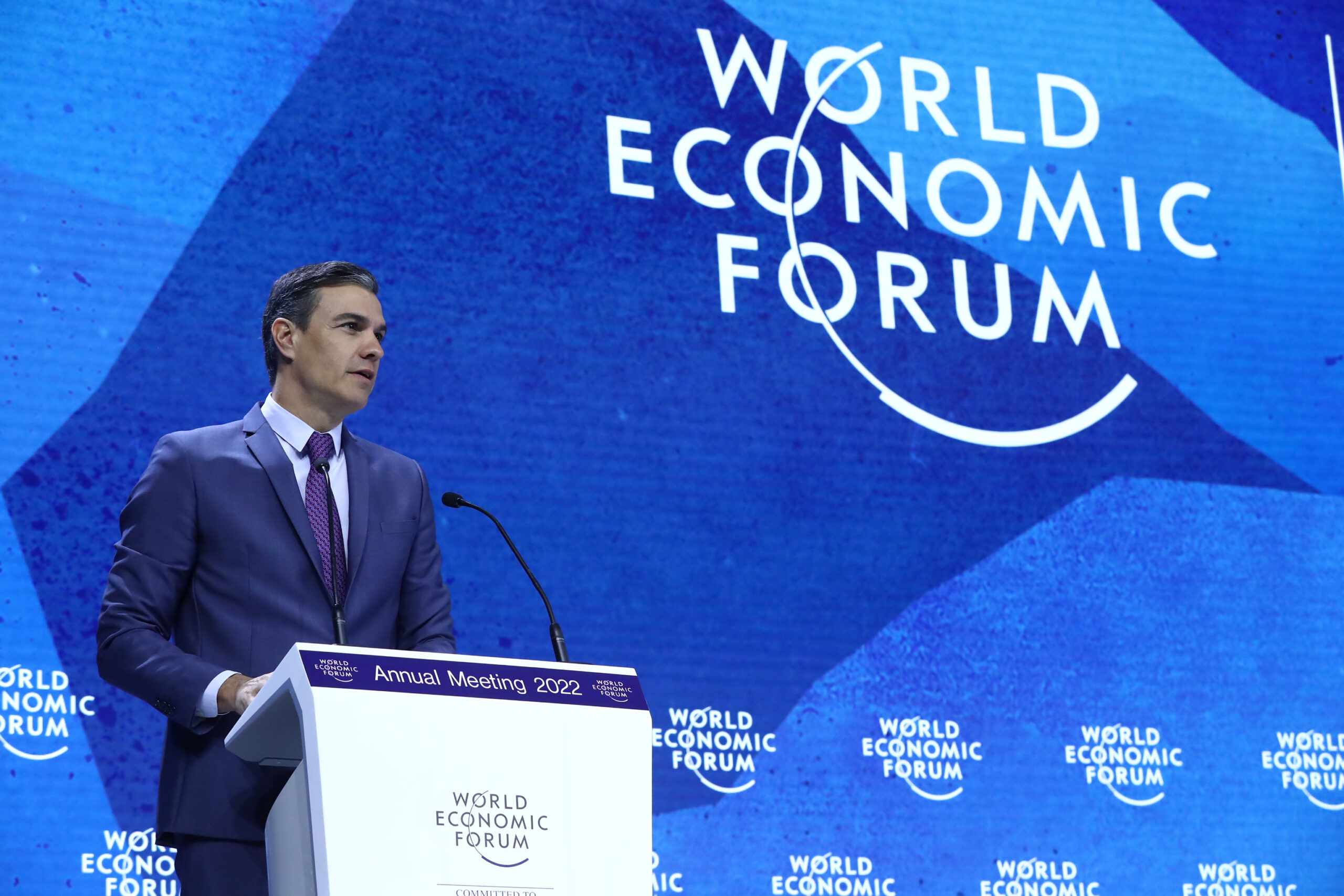The Government has been pressing for weeks so that the new Security Concept, which NATO will approve at its Madrid Summit, serves as an intimidation to the countries south of the Mediterranean. The Executive wants to take advantage of the allies’ desire to show firmness against Russia at the Atlantic Alliance meeting in the Spanish capital to also show its teeth against the Maghreb and the Sahel.
The so-called Madrid Strategic Concept “will define the security challenges facing the Alliance and design the political and military tasks that NATO must carry out to face them,” according to the allied program for next month’s meeting.
The President of the Government himself, Pedro Sánchez, took advantage of a question before the Davos Forum auditorium to send the message to the other side of the Mediterranean. “For Spain it is very important that the NATO Summit in Madrid sends a strong message about its southern flank. We have to face the security challenge on the eastern flank, but also the security concerns on the southern flank,” he stated before a question from the president of the Forum, the Norwegian Borge Brende, about his expectations for the next Atlantic summit.
The Spanish has not mentioned Morocco or Algeria and has hinted that he wants that signal for “sub-Saharan countries”, but has spoken of NATO’s “southern flank” without distinction of countries.
Along the same lines, the Foreign Minister, José Manuel Albares, also campaigned in Davos. “We have very big threats from our southern flank, political and unacceptable use of energy and irregular migration to threaten our sovereignty,” he commented in a discussion on global geopolitical perspectives at the annual meeting of the World Economic Forum in Davos.
Morocco did use immigrants last year in Ceuta causing great tension with Spain. “Unity is our best defense against any threat, whether it comes from the south or the east,” Albares said. The Government hopes to have the support of countries such as the United States or France due to their concern about the terrorist dynamics in the Sahel region, where the jihadists are less weakened than in Iraq or Syria.
According to Albares, these are “very poor countries, where governability has been weakened in the last decade, with more and more military junta, with rising prices of cereals and fertilizers.”
Brende described the Madrid Summit as a “historic event” and asked Sánchez what the accession of Finland and Sweden would be like. The Spaniard, aware of Turkey’s objections, said he could not “speak on behalf of all members” of NATO, but showed clear support for both Nordic countries. His heads of government will attend “of course” the allied summit, according to the PSOE leader. “They are great democracies … and I think it is very important for NATO and the European Union to have them by our side as allies.”
He did not guarantee their accession, but he did maintain that “the political will of the allies is to work with these two countries.” What Spain will do is its part, accelerating “the entire parliamentary process” in the Cortes.
For his part, NATO Secretary General Jens Stoltenberg, also in Davos, highlighted how Russian President Vladimir Putin has revitalized NATO. “He wanted less NATO on his borders and now he is getting more NATO on his borders and more members. Finland and Sweden have announced that they are applying for membership and this is historic,” he congratulated. He once again ruled out direct action against Russia.
Conforms to The Trust Project criteria
















